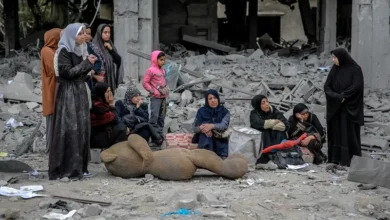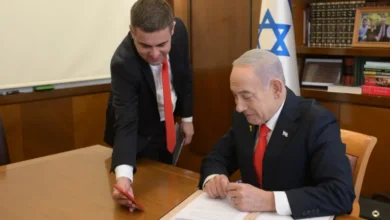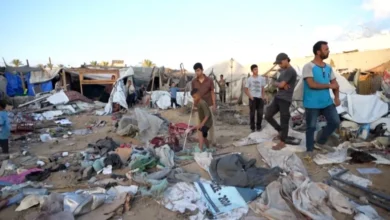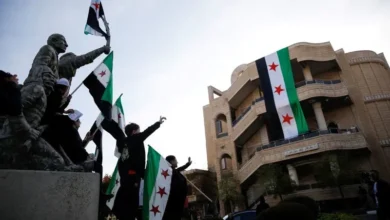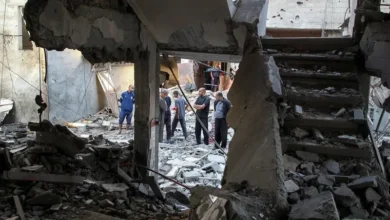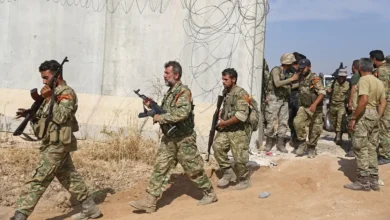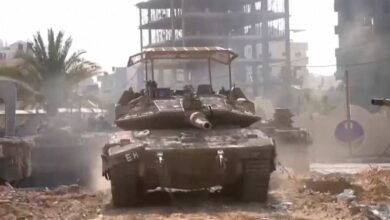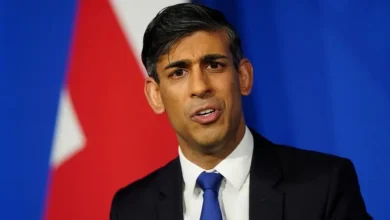Lebanon attacks ignite desperate déjà vu for foreign war doctors
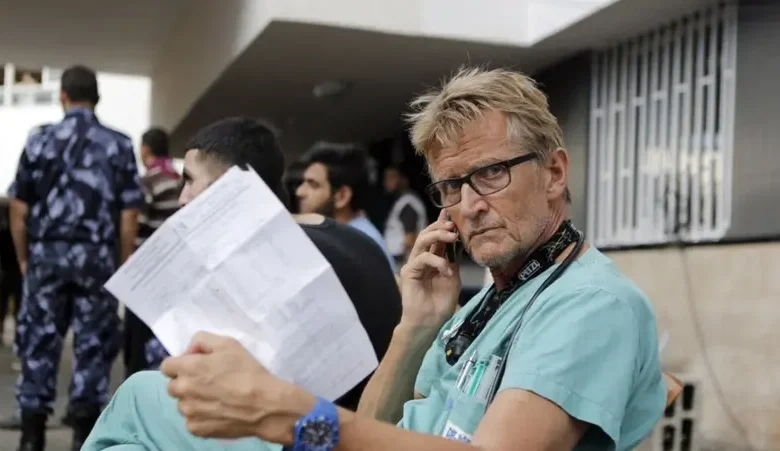
In a south Lebanon hospital, Norwegian doctor Mads Gilbert peered out of the window after bombardment near the Israeli border, four decades after he first worked in the country.
“It’s a horrible experience,” he said in a video call from the southern town of Nabatiyeh.
“It’s been 42 years and nothing has changed,” said Gilbert, who first saw war treating patients during the 1982 Israeli invasion and siege of Beirut.
Below the window paramedics were on standby next to parked ambulances at the hospital behind the front line.
The anesthetist and emergency medicine specialist said he had seen just a few cases since arriving on Tuesday.
“Most of the cases have been south of us and they have not been able to evacuate them because the attacks have been so vicious,” Gilbert said.
Israel has increased its air strikes against Lebanese militant group Hezbollah since September 23, pounding the south of the country and later staging what it called “limited operations” across the border.
On Thursday the Israeli army warned residents to leave Nabatiyeh.
The escalation has killed more than 1,100 people and wounded at least another 3,600, and pushed upwards of a million people to flee their homes, according to government figures.
Official media have reported some Israeli strikes killing entire families, and AFP has spoken to two people who lost 17 relatives and 10 family members respectively.
Gaza on ‘repeat’
Israel’s military “can do whatever they want to healthcare, to ambulances, to churches, to mosques, to universities, as they’ve been doing in Gaza,” said Gilbert, who has repeatedly volunteered in the Palestinian territory during past conflicts.
“And now we see the same repeat itself in Lebanon in 2024.”
A hospital in the town of Bint Jbeil closer to the border on Saturday said it was hit by heavy overnight Israeli strikes, wounding nine medical and nursing staff, most seriously.
At least four hospitals said they had suspended work amid ongoing Israeli bombardment on Friday, and Hezbollah-affiliated paramedics said 11 personnel were killed in Israeli raids in south Lebanon.
On Thursday, Lebanon’s health minister said more than 40 paramedics and firefighters had been killed by Israeli fire in three days.
UN official Imran Riza on X on Saturday spoke of “an alarming increase in attacks against healthcare in Lebanon.”
Britain said reports that Israeli strikes had hit “health facilities and support personnel” in Lebanon were “deeply disturbing.”
Israel has claimed Hezbollah uses ambulances for “terrorist purposes.”
‘Kids with blast injuries’
In the capital Beirut, British-Palestinian doctor Ghassan Abu-Sittah said he also saw parallels with the conflict in Gaza.
Abu-Sittah has tirelessly campaigned for “justice” since spending weeks in the besieged Palestinian territory treating the wounded at the start of the war.
Now in Lebanon, the plastic and reconstructive surgeon described seeing “kids, families whose houses have been targeted” with blast injuries in the past few weeks.
There were “kids with blast injuries to the face, to the torso, amputated limbs,” he said outside the American University of Beirut’s Medical Centre.
Abu-Sittah estimated that more than a quarter of the wounded he had seen in Beirut and other parts of Lebanon were minors.
“I have a girl upstairs who is 13, who had a blast injury to the face, needed reconstruction of her jaw, will need several surgeries,” he said.
“Children who are injured in war need between eight and 12 surgeries by the time they’re adult age.”
According to the UN children’s agency UNICEF, 690 children in Lebanon have been wounded in recent weeks.
It said doctors had reported most suffered from “concussions and traumatic brain injuries from the impact of blasts, shrapnel wounds and limb injuries.”
“It’s just so reminiscent of what was happening in Gaza,” said Abu-Sittah.
“The heartbreaking thing is that this could all have been stopped if they stopped the war in Gaza,” he added.
